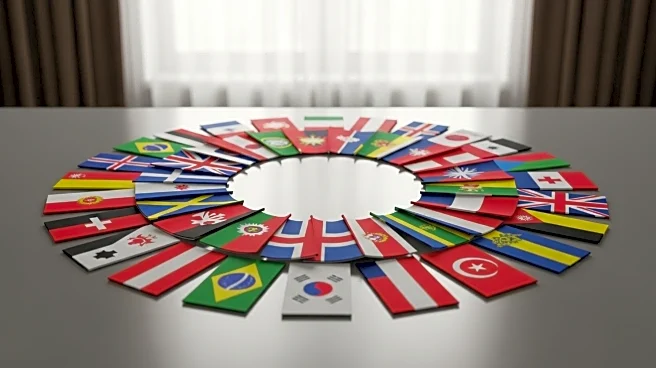What's Happening?
President Trump has announced a $100,000 fee for new H-1B visa hires, causing concern among international students in the U.S. Yuran Zhang, a senior at the University of Illinois Urbana-Champaign, is worried about her future career prospects due to these changes. Zhang, who is on a student visa, planned to use the Optional Practical Training (OPT) to stay in the U.S. after graduation and enter the H-1B lottery. However, the new fee and potential travel restrictions have made her reconsider her plans. She is now exploring job opportunities abroad, including in Canada, as the uncertainty surrounding the visa changes has made her rethink her career path.
Why It's Important?
The changes to the H-1B visa program could significantly impact the U.S. job market, particularly in the tech industry, which relies heavily on international talent. The new fee may deter companies from hiring international graduates, potentially leading to a talent drain as students seek opportunities in other countries. This could affect the competitiveness of U.S. companies and the broader economy. Additionally, the changes send a message about the U.S.'s stance on immigration, which may influence international students' decisions to study and work in the country.
What's Next?
International students like Zhang are advised to start looking for opportunities in other countries due to the lack of job security in the U.S. If the H-1B visa changes do not pan out, Zhang plans to pursue further studies for a master's degree either in the U.S. or Canada. The broader implications of these changes may lead to increased interest in alternative destinations for international students and professionals.











